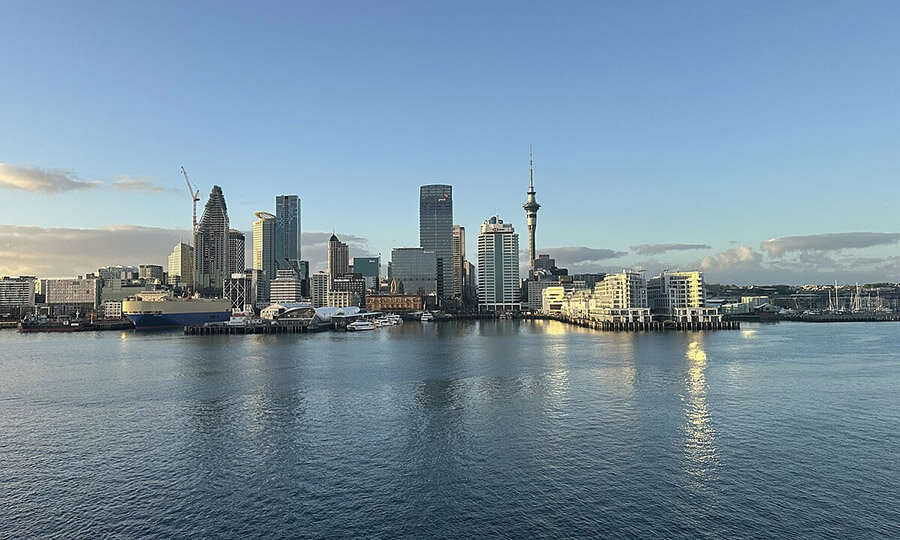New Zealand’s Golden Visa Attracts Investors from the US and Europe

New Zealand is seeing growing interest in its investment immigration program from wealthy foreigners. According to Bloomberg, the highest number of applications and inquiries come from the US, China, and Germany. Notably, the program excludes investments in residential real estate, setting it apart from similar visa schemes in other countries.
Wellington has reopened applications for the Active Investor Plus visa after revising the program to make it more attractive for high-net-worth migrants. The changes include eliminating the English language requirement, reducing the time investors must spend in the country, lowering minimum investment thresholds, and simplifying investment categories. New Zealand’s Immigration Minister Erica Stanford believes the number of applications will increase. As she noted, there is already “huge interest” from the US, Germany, and the rest of Europe. Marcus Beveridge, managing director of Queen City Law in Auckland, said Chinese investors have been the most active, with some renewed interest from Japan, Indonesia, and the US.
This growing attention is attributed to “rising global instability”, as people seek a secure, stable place to live with their families while preserving and growing their wealth. Geographical isolation, a transparent jurisdiction, political stability, and a high quality of life make New Zealand a unique offering among developed nations. Countries like Australia and the UK have closed their investor visa programs, while the US imposes lengthy procedures without shielding applicants from political turbulence. Against this backdrop, New Zealand is attracting more attention as a developed country with a transparent, accessible investment program.
Experts note that for New Zealand, which went through a recession last year, attracting foreign investors is both an economic boost and an opportunity to modernize infrastructure. The revamped Active Investor Plus visa is essentially a “golden visa” allowing wealthy foreigners to obtain residency in exchange for investment. Previously, the program generated around NZD 1 billion (USD 570 million) annually. Stricter rules introduced in 2022 led to a decline, with just NZD 70 million invested under the tougher regime.
The new scheme offers two categories:
Growth – minimum NZD 5 million (USD 2.8 million) investment in businesses or managed high-risk funds, with a requirement to stay in the country for only 21 days over three years.
Balanced – minimum NZD 10 million (USD 5.6 million) investment in bonds, equities, and some types of real estate (excluding residential property), with a required stay of 105 days over five years, with an option to reduce this by investing more.
However, restrictions on foreigners purchasing property remain a key concern. Since 2018, only locals, tax residents, and citizens of Australia and Singapore can buy homes in New Zealand. This measure was introduced following a scandal involving the sale of citizenships, including to billionaire Peter Thiel.
Amid rising interest in the country, this ban is being actively debated again. The ruling National Party supports relaxing the restrictions, allowing purchases of homes priced from NZD 2 million (USD 1.1 million) for foreign investors. But coalition partner New Zealand First is blocking changes. However, NZ First leader Winston Peters has stated he’s willing to discuss easing the ban if tied to broader economic investment.
A court has also ruled to allow foreigners to buy a limited selection of luxury properties—mostly coastal lots with special status, priced from USD 7 million. While this partial relaxation sent an important signal to the market, it doesn’t represent a systemic policy shift.
Priority in the new investment policy remains on direct investments in businesses and innovation rather than passive assets. In 2023, the number of applications fell from nearly 500 to just 14. However, interest is rebounding: the first 10 applicants have already invested NZD 111 million (USD 62 million).
Another factor boosting interest is a recent immigration policy change: in February 2025, New Zealand simplified visitor visa rules, allowing foreigners to stay for up to 90 days while working remotely. This measure targets the growing number of digital nomads. The government estimates tourism creates 200,000 jobs and generates nearly USD 11 billion annually, and that attracting remote workers could revitalize regional economies.
Tourism Minister Louise Upston noted that visas for digital nomads are becoming an international trend, and New Zealand shouldn’t be left behind. The updated visa system reflects the realities of flexible employment and could stimulate the domestic market.
In Q1 2025, inquiries for investment migration to New Zealand doubled compared to the same period in 2024. Immigration agencies report rising interest not just in visas but also in registering companies and acquiring assets.
However, experts warn that the current investor migration system remains niche rather than mainstream. High entry thresholds and ongoing real estate restrictions limit broader participation. Meanwhile, political uncertainty within the ruling coalition raises concerns: any visa policy changes could be revisited as part of interparty compromises.








